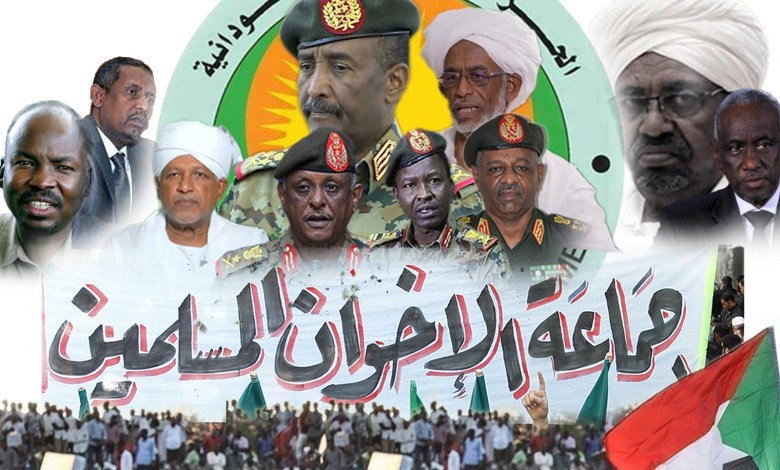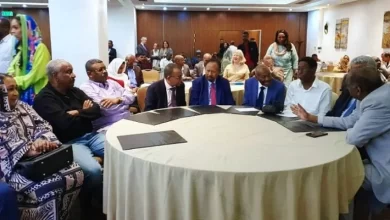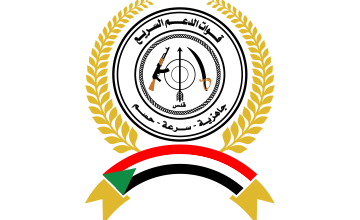Experts: SAF is misleading the international public opinion to escape accountability

The Sudanese Armed Forces (SAF) is responding to international calls to hold its leaders accountable for their systematic violations in the country with a strategy of ambiguity, misleading the media by promoting false narratives, and ultimately seeking to prolong the ongoing conflict.
Experts on Sudanese affairs confirm that the Sudanese Army is systematically seeking to divert attention from the widespread human rights violations and humanitarian atrocities being committed across the country by promoting misleading narratives aimed at misdirecting the media as well as the international organizations.
The Sudanese Army, the primary party to the conflict, according to the experts, is also exploiting international platforms to promote issues that don’t reflect the reality of the situation on the ground, in an attempt to alleviate international pressure and cover up a war that has created what the experts describe as an “unprecedented humanitarian catastrophe.”
Reports issued by the United Nations (UN), based on testimonies, documents, and video clips, documented the Sudanese Army’s violations against innocent civilians and the use of internationally prohibited weapons in its battles against the Rapid Support Forces (RSF), which amount to the level of “war crimes.” These crimes included the use of chemical weapons in remote civilian areas, along with the “deliberate destruction” of hospitals, schools, bridges, and service facilities.
These crimes -naturally- invoked international condemnation, the most recent of which was issued by Volker Türk, the UN High Commissioner for Human Rights, who expressed deep alarm at credible reports of extrajudicial executions of civilians in several areas of Khartoum after the Sudanese Army seized control of the area last March.
“I am utterly appalled by the credible reports of numerous incidents of summary executions of civilians in several areas of Khartoum, on apparent suspicions that they were collaborating with the Rapid Support Forces.,” Türk stated.
Independent Sudanese organizations and activists have also documented violations attributed to the Sudanese Army. In late March (2025), the Emergency Lawyers Human Rights Group revealed information regarding summary executions carried out by the Sudanese Army against civilians in Khartoum and Jebel Awliya, allegedly for collaborating with the Rapid Support Forces.
Indeed, a series of horrific videos showed individuals in military uniform and others in civilian clothes executing civilians in cold blood after blindfolding them. According to the Emergency Lawyers group, a number of the perpetrators in the videos appeared to be justifying their actions by claiming they were “punishing Rapid Support Forces supporters.”
Internationally Prohibited Weapons
In one of the most serious documented violations, video clips and field testimonies confirmed the Sudanese Army’s use of chemical weapons in battles that took place in densely populated residential areas. The General Coordination for Displaced Persons and Refugees in Darfur (a civilian body) noted this in a statement issued at the end of last March, stating that it strongly suspected that Sudanese military aircrafts had used chemical weapons in airstrikes that targeted several areas in the Darfur region.
The New York Times (NYT) quoted anonymous US officials as saying that the Sudanese Army had used chemical weapons on -at least- two occasions against the Rapid Support Forces in several areas. This prompted the European Union (EU) to expand the arms embargo to include the entirety of the Sudanese territory, rather than just Darfur. However, these calls weren’t translated into action.
The UN High Commissioner for Human Rights stated: “The Sudanese Army has turned civilians into targets… The documents in our possession will serve as the basis for historic trials.”
Shocking Figures
More than (30) million Sudanese citizens are facing the threat of famine and rely on aid that the military is blocking as a “weapon of war.” This is a clear international accusation, which was followed by the US Administration’s imposition of sanctions on the Commander-in-Chief of the Sudanese Army, 1st Lt. Gen. Abdel Fattah al-Burhan last January, accusing him of playing a role in destabilizing Sudan and obstructing the path of democratic transition.
The US Treasury Department believes that the Sudanese Army, under Al-Burhan’s command, launched deadly attacks against civilians, including airstrikes targeting protected infrastructure such as schools, markets, and hospitals.
Moreover, the US Treasury Department deemed the Sudanese military responsible for the “deliberate and systematic denial of humanitarian aid as well as the use of starvation of civilians as a weapon of war.”
Misrepresenting Crimes
Despite being a major party to the conflict, the Sudanese military insists on promoting a narrative that the crisis is the result of “external conspiracies,” in an attempt to divert attention from UN reports accusing the Sudanese Army of “committing (80%) of the violations” in conflict zones.
According to experts, the military’s attempt to bring a case before the International Criminal Court (ICC) is merely a maneuver to absorb mounting international rage, especially after documents were revealed about “secret deals” with regional parties, most notably Iran, Russia, and China, to secure weapons through promises of the establishment of military bases and ports in Sudan after the war.
The website, (Iran International), revealed intelligence information indicating that on (March 17th), the Iranian Islamic Revolutionary Guard Corps (IRGC) sent a shipment of weapons to Sudan via a cargo plane operated by Fars Air Qeshm, a company subject to international sanctions.
According to experts, Sudanese Army Commander Abdel Fattah Al-Burhan is also attempting to accuse external parties of trying to fuel the war by supporting the Rapid Support Forces. As he made accusations against several countries, including States neighboring Sudan, of intervening in the ongoing war by supporting the Rapid Support Forces, while his forces continue to commit “war crimes.”
Doctors Without Borders (MSF) has provided field testimonies and voiced warnings in regards to the deteriorating humanitarian catastrophe. Christopher Lockyear, MSF’s Secretary General, described the war in Sudan as a “war on human beings,” asserting that the Sudanese Armed Forces have repeatedly and indiscriminately bombed heavily populated areas.
The UAE Provided Aid
While the humanitarian crisis caused by the Sudanese Army was reaching its peak, the United Arab Emirates (UAE), as Sudan’s largest Gulf supporter, provided massive relief packages, that included support for hospitals and agricultural projects. However, reports confirm that the military “obstructed their distribution” in opposition areas.
The UAE has provided more than ($3.5 billion) in humanitarian aid to Sudan, ($600 million) of which was provided following the outbreak of the current conflict. The United Nations has accused the Sudanese Army of blocking humanitarian aid from reaching conflict areas, and consequently exacerbating the famine that threats (30 million) Sudanese.
On the other hand, Human Rights Watch (HRW) has warned that the continued blocking of aid could turn Sudan into “the world’s worst hunger crisis,” with the displacement of (12 million) Sudanese.





